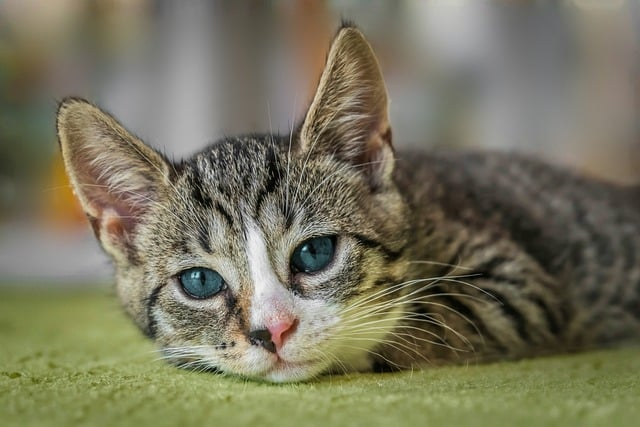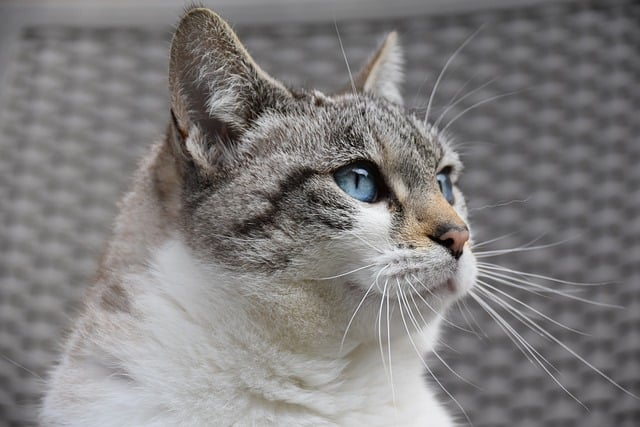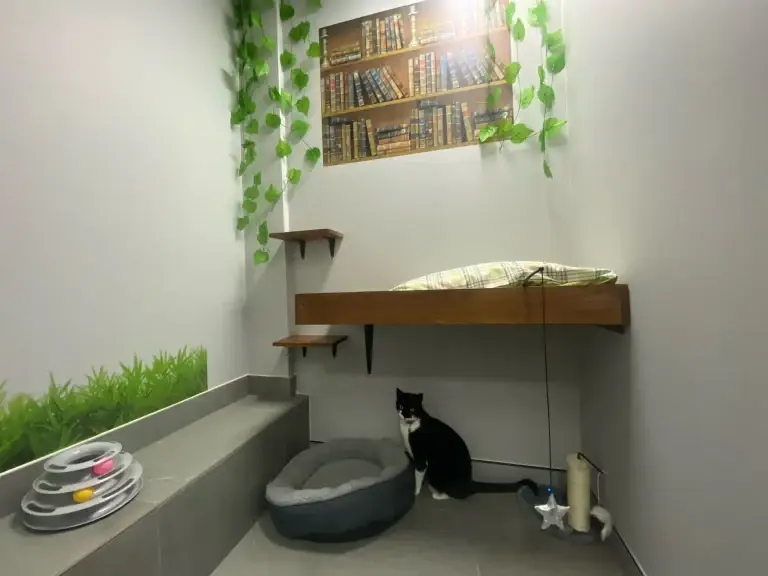It can be difficult to tell if your cat is sick, as cats are masters at hiding signs of illness. However, it’s important to pay attention to changes in your cat’s behaviour and appearance, as these could be indications that something is wrong. In this guide, we will discuss how to tell if a cat is sick by looking at common symptoms and behaviours exhibited by ill cats.
In this guide, we will also cover the different health issues that cats commonly face and how to recognize them. By being more aware of your cat’s health, you can catch potential problems early on and seek proper medical treatment for your furry friend.
Why It’s Important to Monitor Your Cat’s Health
Cats are known for being independent and self-sufficient creatures, which can make it easy to overlook their health. However, as a responsible pet owner, it’s crucial to pay attention to your cat’s well-being. Regularly monitoring your cat’s health is important for several reasons:
Firstly, cats are experts at hiding signs of illness. In the wild, showing weakness can make them vulnerable to predators. This instinct carries over to domesticated cats, making it challenging to detect if they are sick.
Secondly, early detection and treatment of health issues can greatly improve a cat’s chances of recovery. Cats may be able to hide their symptoms for a while, but eventually, their condition will worsen if left untreated.
Lastly, by being proactive with your cat’s health, you can save yourself time and money in the long run. Catching potential problems early on means avoiding costly treatments or hospital stays down the road.
Common Signs That Your Cat May Be Sick

As mentioned earlier, cats are masters at hiding signs of illness. However, there are a few common symptoms and behaviours that may indicate your cat is sick:
Changes in Eating Habits
The first and most noticeable sign of illness in cats is changes in their eating habits. These can include a decrease or loss of appetite, refusing to eat their usual food, or not drinking enough water. Keep an eye on your cat’s food and water intake, as any significant changes could be a red flag.
Plus, if your cat stops eating entirely, it could lead to serious health issues such as liver problems or feline hepatic lipidosis. In this case, it’s crucial to seek immediate medical attention for your cat. Additionally, changes in appetite could also be a sign of dental issues or digestive problems.
If you notice any changes in your cat’s eating habits, it’s best to consult with your veterinarian for proper diagnosis and treatment.
Changes in Bathroom Habits
Just like eating habits, changes in bathroom habits can also indicate if your cat is sick. This includes using the litter box more frequently than usual or not at all, straining while urinating or defecating, and producing unusual stools. It’s important to note that some cats may have occasional accidents outside of the litter box due to stress or territorial issues. However, if these behaviours continue consistently, it could signal a health problem.
Some common health issues related to changes in bathroom habits include urinary tract infections, kidney problems, or intestinal diseases. If you notice any changes in your cat’s litter box behaviour, it’s essential to consult with your veterinarian for proper diagnosis and treatment.
Lack of Energy or Lethargy
Cats are known for their playful and energetic nature, so if you notice your cat suddenly becoming lethargic or uninterested in activities they once enjoyed, it could be a sign of illness. Lethargy can indicate various health issues such as anaemia, heart disease, or even cancer. It’s important to monitor your cat’s energy levels and consult with your veterinarian if you notice any significant changes.
Additionally, lack of energy can also be caused by older age or obesity. If your cat is getting older, it’s normal for them to have less energy and become more sedentary. However, if you notice a sudden decrease in activity levels, it’s best to consult with your veterinarian.
Changes in Physical Appearance
Cats are known for their grooming habits, so any changes in their physical appearance could be a sign of illness. This includes unkempt fur, excessive shedding, visible wounds or injuries, and weight loss or gain. These changes could indicate various health issues such as skin allergies, infections, or even tumours. It’s important to regularly check your cat’s physical appearance and seek medical attention if you notice any significant changes.
Plus, if your cat suddenly stops grooming themselves, it could be a sign of pain or discomfort. Cats are naturally clean animals and may avoid grooming if they are not feeling well. Also, keep an eye out for any bumps or lumps on your cat’s body, as these could be signs of tumours or other health issues.
Vomiting or Diarrhoea
Both vomiting and diarrhoea are common symptoms of illness in cats. While occasional hairballs or eating something they shouldn’t can cause these issues, it’s important to pay attention if these behaviours become frequent or severe. Vomiting and diarrhoea can lead to dehydration and nutrient deficiencies if left untreated. These symptoms can be caused by various health issues such as infections, parasites, or dietary allergies.
If your cat is experiencing these symptoms consistently, it’s crucial to consult with your veterinarian for proper diagnosis and treatment. In some cases, a change in diet may be necessary to help alleviate digestive issues.
Coughing or Sneezing
Cats can also experience respiratory problems such as coughing or sneezing when they are sick. These symptoms can be caused by infections, allergies, or even asthma. It’s important to monitor your cat’s breathing and seek medical attention if you notice any difficulty or changes in their respiratory patterns.
Additionally, coughing and sneezing can also indicate dental issues such as tooth decay or gum disease. These conditions can lead to more serious health problems if left untreated, so it’s essential to address them promptly.
So these are the most common signs of illness in cats. As a responsible cat owner, it’s crucial to pay attention to your cat’s behaviour and seek medical attention if you notice any significant changes. By staying vigilant and addressing health issues promptly, you can ensure your furry friend lives a long and healthy life.
Common Health Issues in Cats

There are several health issues that cats commonly face, including:
- Urinary Tract Infections (UTIs): UTIs are caused by bacteria and can be common in cats, especially those who are overweight or have a diet high in magnesium. Symptoms include frequent urination, straining while urinating, and blood in the urine. Plus, male cats are more prone to developing UTIs which can be a medical emergency. UTIs can also lead to more serious conditions such as kidney disease if left untreated.
- Dental Issues: Cats can develop dental problems just like humans, including plaque buildup, tartar, and gum disease. These issues can be caused by poor dental hygiene or genetics. Signs of dental problems in cats include bad breath, drooling, difficulty eating, and swollen gums. It’s essential to regularly brush your cat’s teeth and schedule regular cleanings with your veterinarian.
- Feline Leukaemia Virus (FeLV): FeLV is a viral infection that attacks the immune system and can lead to various health issues such as anaemia or cancer. This virus is highly contagious among cats and can be transmitted through saliva or close contact. There is no cure for FeLV, but symptoms can be managed with proper medical care.
- Obesity: As with humans, obesity can lead to various health problems in cats. Overweight cats are at a higher risk for diabetes, heart disease, and joint problems. It’s important to monitor your cat’s weight and ensure they are getting enough exercise and a proper diet to maintain a healthy weight.
Staying aware of common health issues in cats and seeking medical attention when needed can help ensure the well-being of your feline friend. Regular check-ups with your veterinarian and providing proper care can also prevent many of these health issues from occurring.
Does Your Cat Need to See the Vet?
As a cat owner, it’s normal to wonder if your cat needs to see the vet every time they seem a little under the weather. While some minor changes in behaviour or appearance may not require an immediate visit, it’s better to err on the side of caution and consult with your veterinarian.
Here are some signs that indicate your cat may need to see the vet:
- Significant changes in energy levels or activity: Any sudden decrease or increase in your cat’s energy could be a sign of an underlying health issue.
- Changes in appetite: If your cat suddenly stops eating or has a decreased appetite for several days, it could indicate a medical problem.
- Litter box issues: Changes in urination or defecation habits can be signs of various health problems such as UTIs, constipation, or blockages. It’s important to pay attention to your cat’s litter box and seek medical attention if you notice any changes.
- Visible symptoms: As mentioned previously, significant changes in physical appearance such as weight loss or gain, excessive shedding, and visible wounds should not be ignored.
Ultimately, it’s best to trust your instincts as a pet owner. If you feel like something is off with your cat, it’s always better to consult with a professional for proper diagnosis and treatment.
Choose Hotel For Cats For A Stress-Free Stay
When it comes to finding the perfect accommodation for your beloved cat, nothing beats The Hotel for Cats. Our luxury retreat offers a secure and comfortable environment where your feline friend can relax and enjoy themselves while you’re away.
At The Hotel for Cats, Our well-appointed rooms and suites provide ample space and entertainment for your cat with amenities like enrichment activities, custom bedding and furniture, TV, relaxation areas, and more.
Furthermore, The Hotel for Cats is run by a caring vet, giving you peace of mind knowing that your cat’s health and wellbeing are our top priority.
So Book now online, and give your cat the luxury they deserve while you’re away. Trust us to provide a safe, healthy, and enjoyable stay for your furry friend.
FAQs
What are some sick cat symptoms?
sick cat cats symptoms can vary widely but often include changes in appetite or behaviour, vomiting, diarrhoea, or lethargy. Subtle signs to watch for include increased hiding or decreased interaction, which could indicate pain or discomfort. Always seek professional veterinary advice if you notice any unusual symptoms in your cat.
How can a cat avoid obesity?
To help a cat avoid obesity, ensure a balanced diet and regular exercise. Monitor food intake and adjust portions based on the cat’s activity level and body condition. Obesity in cats can lead to or exacerbate a few common illnesses, such as diabetes and heart disease, so maintaining a healthy weight is crucial.
What should you do if you suspect your cat has dental disease?
If you suspect your cat has dental disease, it is important to seek professional medical advice. Symptoms of dental disease in cats can include bad breath, difficulty eating, and visible tartar on the teeth. Early veterinary intervention can prevent more serious complications associated with dental disease.
Which illnesses are common in sick kittens?
Sick kittens are particularly susceptible to a variety of cat illnesses, including upper respiratory infections and inflammatory bowel disease. The cat sick may show signs such as sneezing, coughing, or irregular bowel movements. Prompt consultation with a vet is crucial, as kittens’ immune systems are still developing and they can deteriorate quickly.
Conclusion
In conclusion, being a responsible cat owner involves understanding common health issues in cats and regularly seeking medical attention when needed. It’s also essential to ensure your cat receives proper care and attention while you’re away by choosing the right accommodation such as The Hotel for Cats.
By staying vigilant and providing your cat with love and care, you can help them live a long and healthy life. So take good care of your furry friend, they deserve it! Keep an eye out for any changes in behaviour or appearance, provide regular vet check-ups, and choose trusted accommodations for a stress-free stay.


